
Retail Businesses For Sale

In the dynamic landscape of commerce, retail businesses stand out as the cornerstone of the traditional shopping experience. These establishments offer tangible products to consumers through a physical presence, such as a storefront, in contrast to online businesses that operate on digital platforms.
Understanding what retail businesses entail, their advantages over online models, and the crucial role of location can guide entrepreneurs looking to embark on a venture in this sector. Additionally, exploring how owning a franchise like Mail Boxes Etc can fit into this retail framework offers a unique perspective on achieving success in retail.
Retail Businesses Explained
A retail business operates on the principle of selling goods directly to the end consumer. These ventures cover a broad spectrum of industries and product lines, from clothing stores to grocery shops. The essence of retail lies in the physical interaction and transaction between the customer and the product, offering a hands-on shopping experience that online businesses cannot replicate.
Retail Businesses vs Online Businesses
While online businesses boast convenience and a broader reach, retail businesses offer distinct benefits. The tactile nature of shopping, the immediate gratification of purchase, and the personal customer service that retail stores provide create a unique shopping experience that many consumers still value highly. Retail businesses also benefit from impulse buys, where the physical presence of an item encourages spontaneous purchases.
Benefits of Retail Businesses
Owning a retail business comes with several advantages. Firstly, it allows for direct customer engagement, fostering relationships and loyalty. Retailers can also quickly adapt to market trends and customer feedback, adjusting product offerings and displays accordingly. Additionally, the physical presence of a retail business enhances brand visibility and credibility within a community.
The Importance of Community Value
Retail businesses play a crucial role in their communities. They serve as social hubs where face-to-face relationships are built and nurtured. Regular interactions between customers and staff foster a sense of community and belonging, creating a loyal customer base. These personal connections can lead to word-of-mouth referrals and long-term customer retention.

Numerous Ways to Increase Income
Retail businesses have various strategies at their disposal to boost income. By introducing new services, retailers can attract different customer segments. Cross-selling, or suggesting complementary products, can increase the average transaction value. Implementing loyalty schemes rewards repeat customers and encourages them to return, thereby improving retention rates.
The Importance of Location
The success of a retail business often hinges on its location. Key factors such as foot traffic, accessibility, and parking availability significantly impact customer inflow. A prime location in a busy shopping area or with convenient parking facilities can greatly enhance the store’s visibility and attract more customers. The right location supports not only day-to-day operations but also long-term business growth.
Owning a Mail Boxes Etc Franchise in the Retail Sector
Incorporating a Mail Boxes Etc (MBE) franchise into the retail business landscape presents a multifaceted opportunity. MBE franchises, which offer postal, courier, printing, and business services, blend the conventional retail model with service-oriented offerings. This diversification allows franchise owners to tap into multiple revenue streams, catering to both individual consumers and local businesses.
Owning an MBE franchise combines the benefits of a retail business — such as customer interaction and community presence — with the operational advantages of service-based offerings, including repeat business and varied customer bases.
Location is also paramount for an MBE franchise; being situated in a high-traffic area or business district maximizes exposure and accessibility for customers seeking convenient and reliable postal and business services.
Moreover, the comprehensive support system provided by MBE, including training, marketing, and operational guidance, equips franchisees with the tools needed for success. This support, coupled with the brand recognition of Mail Boxes Etc, offers a compelling case for entrepreneurs considering a venture in the retail sector.
Owning an MBE franchise combines the benefits of a retail business — such as customer interaction and community presence — with the operational advantages of service-based offerings, including repeat business and varied customer bases.
Location is also paramount for an MBE franchise; being situated in a high-traffic area or business district maximizes exposure and accessibility for customers seeking convenient and reliable postal and business services.
Moreover, the comprehensive support system provided by MBE, including training, marketing, and operational guidance, equips franchisees with the tools needed for success. This support, coupled with the brand recognition of Mail Boxes Etc, offers a compelling case for entrepreneurs considering a venture in the retail sector.
While the retail landscape continues to evolve with the growth of online businesses, the tangible, personal experience offered by retail stores remains irreplaceable. For those looking to venture into this dynamic sector, understanding the advantages of retail businesses and the strategic importance of location can pave the way to success.
Furthermore, exploring franchise opportunities with established brands like Mail Boxes Etc can offer a balanced entry point into the world of retail, providing the benefits of brand recognition, operational support, and a diversified business model. Additionally, by emphasizing community value, fostering face-to-face relationships, and employing various strategies to increase income, retail businesses can thrive in an increasingly competitive market.

How To Find A Franchise For Sale Near Me

Embarking on a franchising journey combines the thrill of entrepreneurship with the structure and support of an established business model.
The first step towards owning a franchise is understanding your own entrepreneurial desires and the type of business that aligns with your goals and lifestyle. Pinpointing your interests is crucial whether you’re drawn to retail, services, or online ventures.
Assessing Your Needs and Interests
Start by evaluating what kind of business excites you. Are you passionate about providing a tangible service to your community, or does the idea of running an online enterprise appeal to you more? Your business should reflect your interests and strengths, as this alignment is often a precursor to success.
Location-Based vs Non-Geographic Franchises
Next, determine if your preferred franchise operates within geographical boundaries or if it offers the flexibility of non-location-based operations. Some franchises thrive on the local foot traffic of a physical store, while others operate effectively online or through travel-based models that serve clients directly at their locations.
Store-Based, Online, or Travel-Based?
Identifying whether you’re looking for a store-based, online, or travel-based franchise is crucial. Each model comes with its own set of advantages and challenges. Store-based franchises often benefit from brand visibility and customer walk-ins but may come with higher overhead costs. Online franchises offer flexibility and lower startup costs, while travel-based franchises require mobility but provide the personal touch of direct service.
Engaging with Local Franchisees
Once you’ve narrowed down the type of business you’re interested in, take the time to visit local franchisees in your area. This step offers invaluable insights into the day-to-day operations and challenges of the franchise. Interacting with existing franchise owners can provide a clearer picture of what to expect and whether the business meets your expectations.
Using Online Directories
Online directories like Businesses For Sale, Franchise Direct, and Franchise Local can be excellent resources for discovering various franchises available for purchase. These websites list franchises based on factors like industry, location, and price, offering a convenient way to browse different options. Utilising online directories is a smart starting point for researching franchises and identifying the most suitable opportunities for your needs.

Taking the Next Step
If your research and interactions leave you feeling confident, the next step is to contact the franchise’s head office. Engaging with the franchisor directly will provide you with detailed information about available franchise opportunities, financial requirements, and the next steps towards ownership.
Considering a Mail Boxes Etc Franchise
For those intrigued by the prospect of a versatile business model that spans postal, courier, printing, and office supply services, owning a Mail Boxes Etc (MBE) franchise could be an attractive option.
MBE franchises cater to a broad clientele, including businesses and individual consumers, offering the unique advantage of diversified revenue streams.
Whether you’re interested in a store-based model that benefits from high street visibility or prefer the dynamic nature of serving businesses directly, MBE offers comprehensive training and support to ensure your venture’s success.
Before proceeding, visit your local MBE centre to witness the operations firsthand and discuss with the franchisee their experience with the brand. If MBE aligns with your entrepreneurial vision, reaching out to the MBE head office will set you on the path to becoming part of a global network committed to quality service and community engagement.
Finding the right franchise for sale near you involves a mix of self-reflection, research, and direct engagement with existing franchisees. By following these steps, aspiring entrepreneurs can navigate the franchise landscape more effectively, paving the way for a successful and fulfilling business venture.

How Do Franchises Work?

Franchising presents a unique business model that balances entrepreneurial independence and a well-established brand’s support structure.
This approach has demonstrated success across a wide array of industries, offering an appealing option for individuals keen on running their own business but wary of the risks associated with starting from scratch.
The essence of franchising—a combination of a legally binding franchise agreement, initial and ongoing fees, brand recognition, and corporate support—provides a comprehensive framework for business operation and growth.
Franchise Agreement and Financial Commitments
Central to franchising is the franchise agreement, a contractual arrangement defining the relationship between the franchisor and the franchisee.
It details rights, obligations, fees, and the tenure of the agreement. Opening a franchise involves paying an upfront franchise fee for the right to operate under the franchisor’s brand, followed by ongoing royalty fees, which are typically a percentage of the franchise’s sales. These fees finance the franchisor’s support services and contribute to collective marketing efforts.
Brand Recognition and Support
A significant advantage for franchisees is immediate brand recognition. For instance, a franchise under Mail Boxes Etc. (MBE) benefits from the brand’s established market presence and customer base. MBE ensures its franchisees receive extensive marketing support, ranging from national campaigns to local promotional activities, leveraging the brand’s reputation to attract customers.
Training and Operational Support
MBE places a strong emphasis on training and support, providing franchisees with a comprehensive induction into operational processes, financial management, and customer service. This preparatory phase is crucial for maintaining service quality and operational consistency across all MBE locations. Ongoing support from the franchisor addresses operational challenges and keeps franchisees abreast of new developments.
Operational Guidelines and Access to Resources
Franchisees are expected to adhere to the franchisor’s business model and operational guidelines, which ensures brand consistency. MBE franchisees gain access to preferred supplier rates and a proven operational system, reducing costs and streamlining business processes.
Innovation and Product Development
Franchisees benefit from the franchisor’s ongoing innovation efforts. MBE continually develops new products and services, allowing franchise outlets to offer the latest solutions without the franchisee needing to invest in research and development independently.
Site Selection and Market Research
MBE also assists franchisees in selecting optimal locations for their outlets based on thorough market research, enhancing the franchise’s potential for success. Additionally, franchise agreements may include territory rights, offering franchisees protection from direct competition within their designated area.
Compliance and Legal Support
Ensuring regulatory compliance is another area where franchisors, including MBE, provide guidance. Franchisees receive assistance in navigating licensing, health and safety standards, and employment laws, safeguarding the business against legal pitfalls.
In essence, the MBE franchise model encapsulates the quintessential benefits of franchising—offering individuals a pathway to business ownership supported by the robust infrastructure of an internationally recognised brand.
With MBE, franchisees step into a business equipped with a strong brand identity, a comprehensive support system, and a diverse range of services designed to meet the evolving needs of businesses and consumers alike.
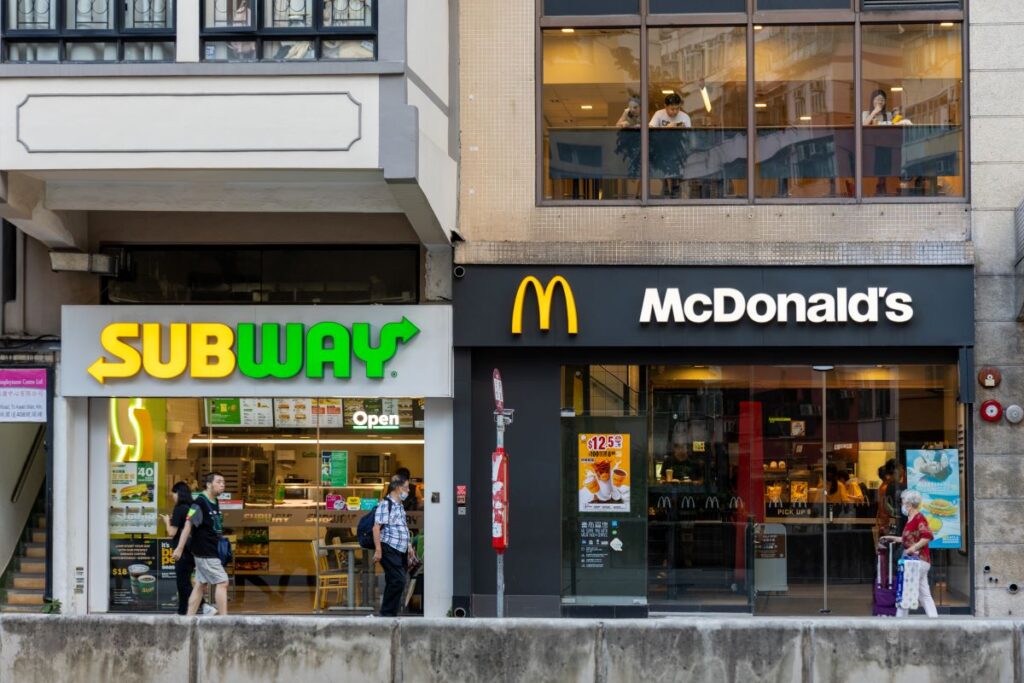
Successful Franchise Examples
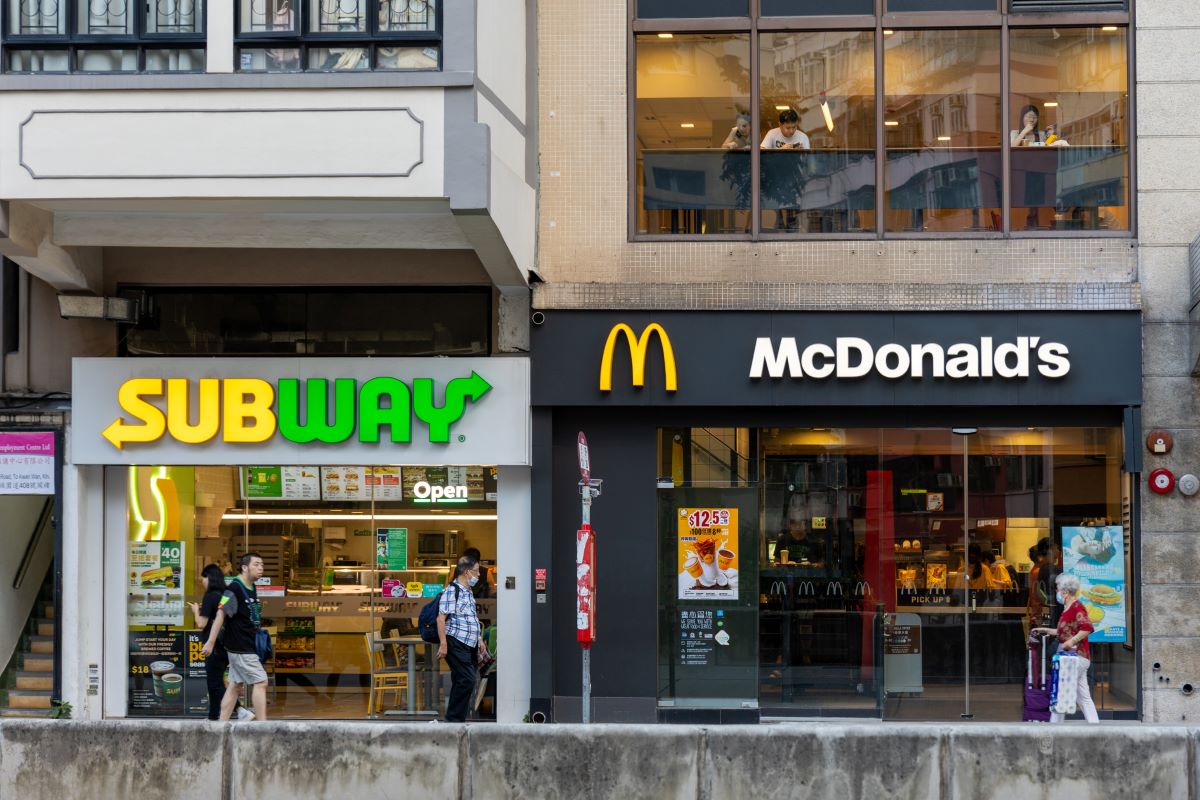
Franchise opportunities in the UK span a diverse range of industries, from food and beverage to education and home services, offering varied avenues for entrepreneurs to explore. Here are 20 notable franchises that operate within the UK, each with its unique business model and support system.
A global leader in the fast-food industry, McDonald’s boasts significant brand recognition. Franchisees benefit from comprehensive training and a proven business model. The franchise fee and initial investment are on the higher end, reflecting the brand’s market position.
Subway offers a healthier alternative in the fast-food sector, with lower initial costs compared to other giants. Its franchise model emphasises local marketing support and operational efficiency.
Specsavers is an international optical retail chain co-founded in 1984 by Doug and Dame Mary Perkins.
It has grown to become one of the largest and most trusted opticians in the UK and beyond, offering a comprehensive range of eye care services, including eye tests, glasses, contact lenses, and hearing services.
Specsavers operates on a joint venture partnership model, which is a unique approach within the franchising world, blending the benefits of being your own boss with the support of a recognised brand.
Dominating the pizza delivery service, Domino’s Pizza integrates innovative technology with a robust franchise model, offering marketing support and efficient supply chain systems.
KFC appeals to franchisees with its global brand recognition and solid business model focused on high standards and customer satisfaction, backed by marketing and operational support.
Operating in the education franchise sector, British Swim School focuses on teaching swimming skills. It offers a unique business model with low overhead costs and comprehensive training programmes.
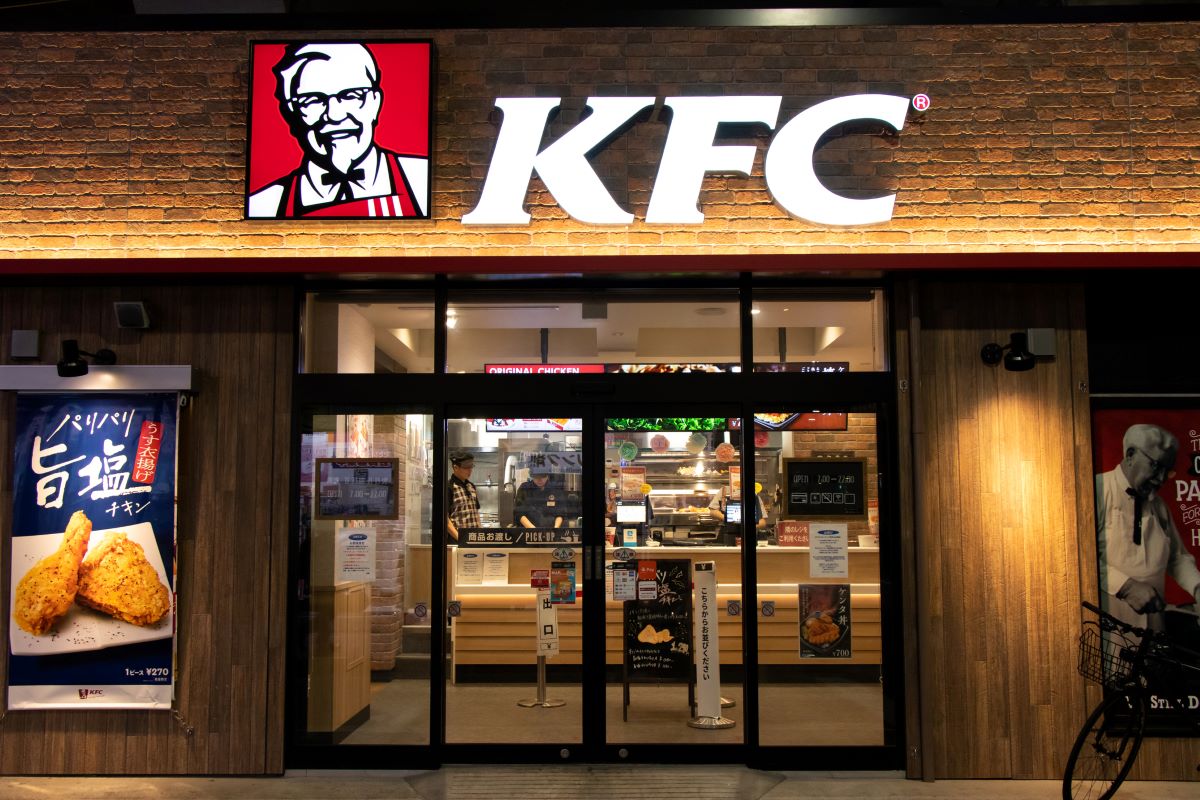
Tutor Doctor represents the growing sector of education franchises, offering personalised in-home tutoring. The franchise model includes extensive training and a strong support system.
With a focus on convenience and accessibility, Anytime Fitness offers a compelling franchise model in the fitness industry, including marketing support and operational training.
Papa John’s Pizza is a notable player in the fast-food franchise sector, especially within the competitive pizza delivery service market in the UK.
Known for its commitment to “Better Ingredients. Better Pizza,” Papa John’s has established itself as a favourite among pizza lovers, offering a promising franchise opportunity for those with a passion for food service and a desire to operate their own business under the umbrella of a globally recognised brand.
In the property sector, Century 21 provides a globally recognised brand and a comprehensive support system covering training, marketing, and operational strategies.
Offering home care services, Home Instead Senior Care focuses on quality and compassion, providing extensive training and support to franchisees in this growing sector.
A leading lawn care service, GreenThumb offers an environmentally friendly business model with support in marketing, operations, and technical training.
Specialising in domestic cleaning services, MOLLY MAID offers a simple business model with strong brand recognition and support in marketing and operations.
ChipsAway stands out in the automotive repair sector with a mobile business model, offering training and support in technical skills and business operations.
Snap-on Tools offers a unique opportunity in the automotive sector with its mobile stores. The franchise includes training in sales, marketing, and product knowledge.
Blending Asian cuisine in a fast-casual dining experience, Wok&Go provides a unique business model with support in site selection, training, and marketing.
Focusing on small businesses, TaxAssist Accountants offers a niche opportunity in the financial sector, including comprehensive training and marketing support.
A recruitment franchise, Driver Hire focuses on the logistics sector, offering a robust business model with support in operations, sales, and marketing.
Specialising in kitchen makeovers, Dream Doors offers a home improvement franchise opportunity with training in sales, marketing, and project management.
Coffee-Bike presents a unique mobile coffee shop model, offering flexibility and low initial investment, with training and support in business operations and barista skills.
These franchises illustrate the diverse opportunities available in the UK market, each with its business model, support system, and sector focus, catering to a wide range of entrepreneurial interests.
Why choose Mail Boxes Etc.
Mail Boxes Etc represents a unique franchise opportunity that stands out in the competitive landscape of franchising in the UK. Unlike the examples provided, which span the fast-food, education, fitness, telecommunications, property, home care, automotive, and other sectors, Mail Boxes Etc offers a comprehensive suite of services that cater to both businesses and individual consumers. This versatility makes it an appealing option for prospective franchisees seeking diversity in service offerings and revenue streams.
Mail Boxes Etc. specialises in postal, courier, printing, and office supply services, addressing the needs of a broad customer base, from small and medium-sized enterprises to corporate clients and the general public. This wide-ranging service portfolio provides franchisees with multiple income sources, reducing the risk associated with relying on a single product or service for revenue.
Mail Boxes Etc’s business model is designed for adaptability and resilience, thriving even in challenging economic times by providing essential services that remain in demand. This aspect of the business model offers a distinct advantage over more niche or sector-specific franchises, ensuring steady footfall and business opportunities regardless of seasonal fluctuations or market changes.
Furthermore, Mail Boxes Etc franchisees benefit from a strong international brand presence and a proven business model that has been refined over decades. The franchise offers extensive support in terms of marketing, training, and operations, ensuring franchisees are well-equipped to succeed. This support system is comprehensive, covering everything from site selection and store setup to ongoing operational guidance, making it a standout choice for those new to franchising or looking for a business with robust franchisor backing.
In comparison to other franchises, Mail Boxes Etc also requires a relatively modest initial investment, with competitive franchise fees and clear, transparent information on what the investment covers. This transparency, combined with the franchise’s long-standing reputation for franchisee support and customer satisfaction, positions Mail Boxes Etc as a superior choice for individuals looking to invest in a franchise with strong growth potential, diverse revenue sources, and substantial franchisor support.
Choosing Mail Boxes Etc means becoming part of a network that values innovation, customer service, and franchisee success, making it an attractive option for prospective franchisees seeking a business with comprehensive support, a diverse service offering, and significant brand recognition.

Franchise Opportunities

Introduction to Franchise Ownership
Franchising presents an attractive pathway for entrepreneurs to dive into business ownership with the backing of an established brand. It marries the autonomy of running your own business with the structure and support of a proven business model, offering a blend of security and independence rare in traditional start-ups.
Identifying the Right Franchise for You
Choosing the right franchise involves introspection and market research. Prospective franchisees should consider their passions, strengths, and lifestyle preferences. Whether it’s a passion for food and hospitality or skills in education and training, the franchise industry spans a diverse array of sectors.
Evaluating Franchise Models
Franchises come in various formats, each with unique benefits and challenges. Store-based franchises offer physical interaction with customers but may come with higher overheads. Online franchises appeal due to their flexibility and lower startup costs, while mobile franchises offer the ultimate in flexibility, allowing business operations on the go.
A Football Metaphor to Inspire Business
In collaboration with the creative marketing agency Different, we’ve designed our campaign to energize and empower businesses using a football metaphor.
This underscores our role as a one-stop partner, facilitating both physical and digital business processes. Key services include domestic and international shipping, comprehensive support throughout the shipping process, and efficient warehouse and e-commerce order management.
Rebranding for Business Focus
As part of this strategic initiative, we’re introducing a new logo aimed at business customers. This rebranding effort underscores our evolution from a pack-and-ship specialist to a multifaceted business partner.
The campaign’s engaging visuals and compelling copy highlight our versatility and expertise, demonstrating our ability to provide professional solutions that stay ahead of market trends and business requirements.

The Mail Boxes Etc Franchise Opportunity
Mail Boxes Etc offers a comprehensive franchise model that stands out for its support and diversity of services, including postal, courier, and print solutions. With an initial investment breakdown of £64,500, excluding technology leasing fees, MBE provides an accessible entry point into franchising with robust support in training, marketing, and operations.
Selecting the Ideal Location
Choosing a location for a franchise like Mail Boxes Etc involves considering business and pedestrian traffic, parking convenience, and rental rates. The right location can significantly enhance the franchise’s visibility and accessibility, contributing to its success.
Launching Your Franchise
Preparing your premises involves not just aesthetic considerations but also functional planning to ensure efficient operation. A successful launch is supported by strategic marketing efforts that highlight the franchise’s unique offerings and attract an initial customer base.
Joining the Mail Boxes Etc Family
Becoming part of the Mail Boxes Etc franchise network begins with an application process that assesses fit and alignment. Once onboard, franchisees benefit from ongoing support and become part of a community that shares knowledge, experiences, and successes.
Embarking on a franchise journey offers a unique blend of challenges and rewards. With thorough preparation, careful financial planning, and strategic operations, aspiring business owners can leverage franchise opportunities like Mail Boxes Etc to achieve entrepreneurial success.

The most important logistics fairs

Logistics and shipping fairs represent important events for companies that wish to expand their commercial networks and establish solid international partnerships.
Participating in a logistics fair also allows companies to stay updated on the latest news in the sector, identifying emerging trends that could give a boost to business development.
These events offer entrepreneurs a complete overview of the best practices to follow and are a valid support for studying the main dynamics that drive an expanding market.
According to the latest data from Statista, the logistics sector will exceed the value of 13.7 billion euros within the next three years, driven above all by the Asian market, thanks to the expansion of trade routes and the shift of industrial production towards countries in the East.
Therefore, participating in the main logistics and shipping fairs becomes crucial for companies that want to remain competitive and seize the opportunities offered by this rapidly growing market.
Point 1. According to Statista, the global e-commerce logistics market will reach over 770 billion euros in the next two years.
Point 2. According to the latest data reported by Allied Market Research, the freight transport market is recording an annual growth rate of 7%.
Why you should participate in logistics and shipping fairs and events
Participating in trade fairs and events on logistics and shipping offers countless strategic advantages for companies. These events are also the ideal places for those who want to open a franchising or a business: visitors are potential customers or partners looking for valid solutions to optimize and speed up business processes. Here are the main advantages of participating in logistics and shipping fairs:
- Updates on the latest trends. Logistics trade fairs represent a unique opportunity to discover emerging innovations and technological innovations that are redefining the sector.
- Professional Networking. They enable you to create and consolidate relationships with other professionals, facilitating collaboration and the expansion of your network of contacts.
- Training and development. By participating in seminars, workshops and conferences, it is possible to acquire new skills and deepen knowledge of the activities connected to your company’s core business, improving one’s professional preparation.
- Business Opportunities. At logistics fairs you can meet potential customers and business partners, giving rise to new growth opportunities for your company in the main international markets.
The 6 most important international logistics fairs
As we have seen, participation in international logistics fairs offers companies the opportunity to better understand the dynamics of the sector in the main foreign markets. These events are not only showcases for the promotion of products and services, but also important moments of exchange of knowledge and development of skills, which help companies to devise effective strategies to face market changes. Here are the main international logistics fairs:
- Transport Logistic (Monaco di Baviera, Germany). The most important logistics, IT and supply chain management trade fair globally. The event takes place every two years in Munich, generally between May and June, and is considered the sector’s main international networking venue. Attendees can explore a vast exhibition area, attend lectures by international experts and participate in workshops covering a wide range of topics. From equipment for the transport of goods to modern solutions for automatic identification and packaging, up to e-business and big data management for the planning and optimization of storage and movement of goods.
- LogiMAT (Stuttgart, Germany). It takes place every year, between February and April, in Stuttgart and is one of the main logistics fairs dedicated to the distribution and management of goods. This event represents an essential point of reference for companies: every year it brings together exhibitors and visitors from all over the world, encouraging the exchange of ideas and the creation of new collaborations. Participants can attend practical demonstrations, participate in specialized workshops and update themselves on market news, from the industrial metaverse to order and supply chain management.
- Intermodal South America (San Paolo, Brazil). This event, generally organized between February and April each year, is dedicated to the movement of goods and international trade and represents a unique opportunity for companies. Intermodal South America attracts a global audience of professionals, including manufacturers, distributors, operators and service providers. Participants can attend conferences and B2B meetings, where they discuss the correct application of international transport regulations and develop strategies to remove obstacles to the functioning of international trade. This fair not only facilitates networking and the creation of new business partnerships, but also offers a wide range of exhibitors presenting the latest solutions in terms of transportation, warehousing and supply chain management.
- The Logistics World Summit & Expo (Mexico City, Mexico). This summit, among the most significant events for the sector in Latin America, brings together market leaders, experts and professionals in April to discuss current challenges and future growth opportunities. Participants can attend conferences held by internationally renowned speakers and visit an exhibition area where companies present their products and services, encouraging the exchange of ideas and the creation of new collaborations. The event represents a fundamental platform for companies that wish to remain competitive and increase their productivity in the main markets across the border.
- LogiMAT (Stuttgart, Germany). It takes place every year, between February and April, in Stuttgart and is one of the main logistics fairs dedicated to the distribution and management of goods. This event represents an essential point of reference for companies: every year it brings together exhibitors and visitors from all over the world, encouraging the exchange of ideas and the creation of new collaborations. Participants can attend practical demonstrations, participate in specialized workshops and update themselves on market news, from the industrial metaverse to order and supply chain management.
- China International Logistics and Transportation Fair (Shenzhen, China). Also known as CILF, it takes place every year, generally in September or October, in Shenzhen and is one of the most important logistics and transportation exhibitions in Asia. It is an international meeting place that promotes networking between professionals and entrepreneurs, attracted by the presentation of the latest technological innovations. CILF attracts a wide range of exhibitors, visitors and operators from all over the world, including shippers, transport companies and service providers. The event offers a complete overview of the latest advanced solutions dedicated to cross-border e-commerce, packaging equipment and materials, warehouse automation and new green solutions applied to the sector. The CILF facilitates meetings between companies and investors, creating a favorable environment for the development of new partnerships.
- LetExpo (Verona, Italy). This fair takes place every year during the month of March in Verona and is one of the most important events dealing with sustainable logistics and transport. The event offers a complete overview of technological innovations, sustainable solutions and best practices to follow in supply chain and transportation management. Attendees can explore the large exhibition area, attend conferences and participate in events dedicated to the sustainable movement of goods. LetExpo is the ideal place to find new business partners with a strong interest in environmental issues, digitalization and automation.
Your presence at these events not only strengthens your professional skills, but also facilitates the creation of strategic collaborations that can give a significant boost to company growth. Logistics fairs are an indispensable tool for staying at the forefront and seizing the development opportunities offered by the expansion of international commercial networks.
MBE offers its partners access to a global network of more than 1800 Business Solutions Centers around the world. Becoming an MBE partner will allow you to access an ever-growing market and become a point of reference for business and retail customers in the e-commerce, logistics and shipping sectors.
We offer our partners a proven franchising system that allows you to offer a wide range of solutions to your customers. By joining our network, you will become the ideal partner for companies and individuals, providing targeted services that contribute to their growth: from shipping to logistics for e-commerce, we also offer marketing and printing services to support companies during their participation in international fairs and events.Contact us and boost your professional career.

What the catchment area of a franchise is and how it is calculated

Calculating the catchment area of a franchise is a crucial step to take every time you want to start a new business, making informed and strategic decisions based on analytical data.
Defining the catchment area for a franchise allows you to have an estimate of the flow of potential customers interested in the products or services offered, which represent the primary target towards which to direct your marketing and sales activities. Knowing this information allows you to estimate the real potential of the market and offers valuable indications for the strategic and operational planning of the business in the long term.
Analyzing the demographics and geography of a business’s catchment area is essential to identify the correct location of the point of sale and evaluate the penetration rate in a specific market. While demographic segmentation provides valuable details such as age, gender, income and education level of potential customers, geographic analysis helps understand where consumers are concentrated and what their habits are. This data, combined with information on purchasing behavior, can reveal not only who potential customers are, but also how and when they interact with the product or service offered by your business.
In this guide we will explore the main methods used to calculate the catchment area of a franchise, illustrating how they can be used to precisely outline the profile of your ideal customer. We will also address the importance of geographic and behavioral analysis, elements that contribute to designing an effective and targeted business development strategy.
Point 1. The catchment area offers an estimate of the flow of potential customers of a business activity
Point 2. This analysis improves decision making by providing key information for opening new locations
What the catchment area of a franchise means
By catchment area we mean the geographical territory in which the point of sale manages to attract potential buyers interested in the products or services offered by a specific commercial activity. This concept is essential to evaluate the feasibility and potential of a point of sale in a specific geographical area. It includes the analysis of various demographic, economic and social factors that influence market demand.
Defining the catchment area helps franchisors and franchisees to develop targeted marketing strategies, to choose the most suitable location and to personalize the commercial offer based on the needs and preferences of local consumers. It also allows you to define the distances and travel times necessary for customers to reach a point of sale and helps entrepreneurs to define the main service coverage area with an analytical method.
This analysis tool also allows us to understand the local market by helping companies evaluate the potential of existing points of sale, identifying the least performing locations and the best locations in which to open a new business. The catchment area of a franchising business is generally divided into three sectors, which allow for a detailed and geographically distinct overview of the attractiveness of the point of sale under consideration:
- Primary zone. The area immediately adjacent to the point of sale, from which most consumers generally come. This proximity makes the store a convenient and more immediate choice for making purchases.
- Secondary zone. This area includes all those customers who are further away but who could still go to the store to make purchases. However, the greater distance from the headquarters makes it necessary to adopt targeted sales strategies, which require more effort than those necessary to attract customers located in the primary area.
- Tertiary zone. For entrepreneurs, this area represents the greatest challenge, because they have to intercept people who are not in the immediate vicinity of the point of sale and who may have valid, closer alternatives available. Convincing these potential customers to prefer your business may require significant marketing efforts and the support of a solid brand that can guarantee sufficient visibility and reliability to convince even those furthest away.
How to calculate the catchment area
As anticipated, this analysis significantly influences decisions regarding localization, marketing strategies and business development. By studying various factors, such as demographics, geography, competition from other sales outlets and consumer habits, it is possible to outline a clear picture of the target market and optimize your strategy to effectively reach your geographical target.
There are some methods for calculating the catchment area for a franchise that allow you to define a geographical area with respect to the distance from your business, the travel times needed to reach it and other psychological aspects. As we have seen, the result is the subdivision of the area, which means opening a franchising business in bands or degrees of reachability. Here are the main methods used to calculate the catchment area:
- Calculation of the isochronous distance. This method measures the franchise’s catchment area based on the time needed to reach the point of sale. It is used to determine the area within which a customer can arrive at the store in a predefined time, for example 10, 20 or 30 minutes, either by car or by other means of transport.
- Calculation of the isometric distance. It differs from the isochronous method because it is based on physical distance rather than travel time. This approach defines the catchment area by measuring a fixed distance from the store, such as 5, 10 or 15 kilometers.
- Analysis of the psychological catchment area. This type of calculation focuses on the perception that potential customers have of the distance and attractiveness of the store. The distances calculated using this method may differ from the real ones due to some factors, such as: ease of access, the presence of competitors in the identified area, the visibility of the point of sale and the purchasing habits of consumers.
By combining this information with competitor analysis and demographic data such as age, income and purchasing trends, you can tailor your offer to the specific needs of your target market. This approach provides a deep understanding of market dynamics and your competitive position, helping businesses define targeted marketing strategies and make informed decisions about locating and expanding their stores.
MBE Boxes Etc provides support in identifying the optimal locations for new points of sale and in designing a marketing strategy based on an in-depth analysis of the territory and the local market. Using these advanced methodologies, financial support and an ongoing training program, franchisees have the opportunity to become competent entrepreneurs, maximizing their return on investment.
Contact us and open an MBE center in your area.
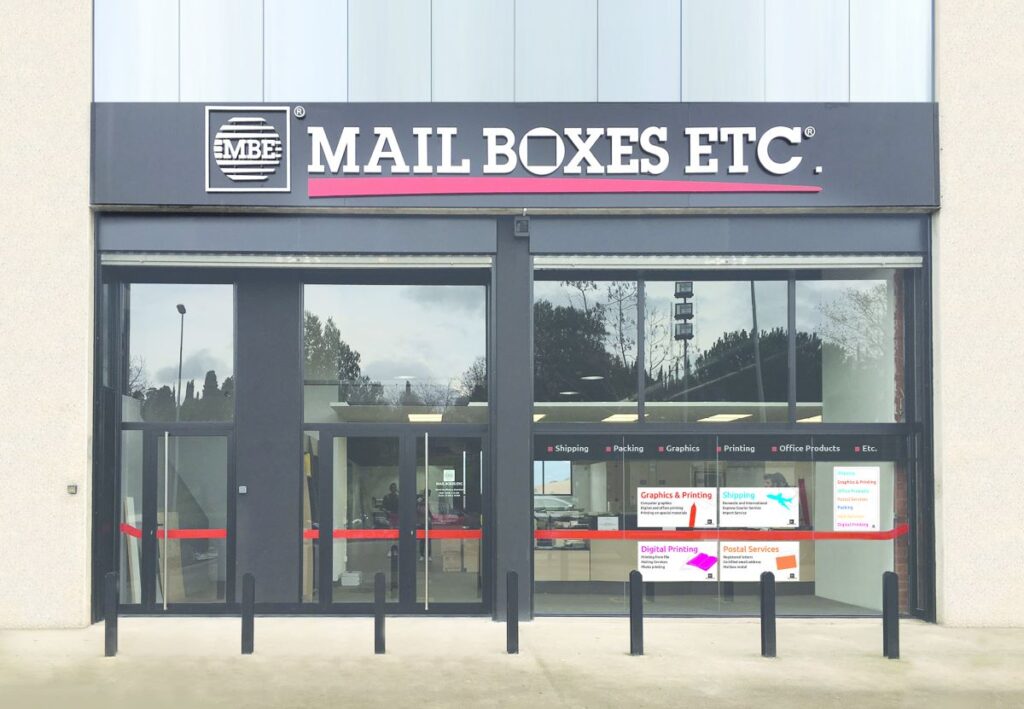
Mail Boxes Etc. – Comprehensive Solutions for Businesses
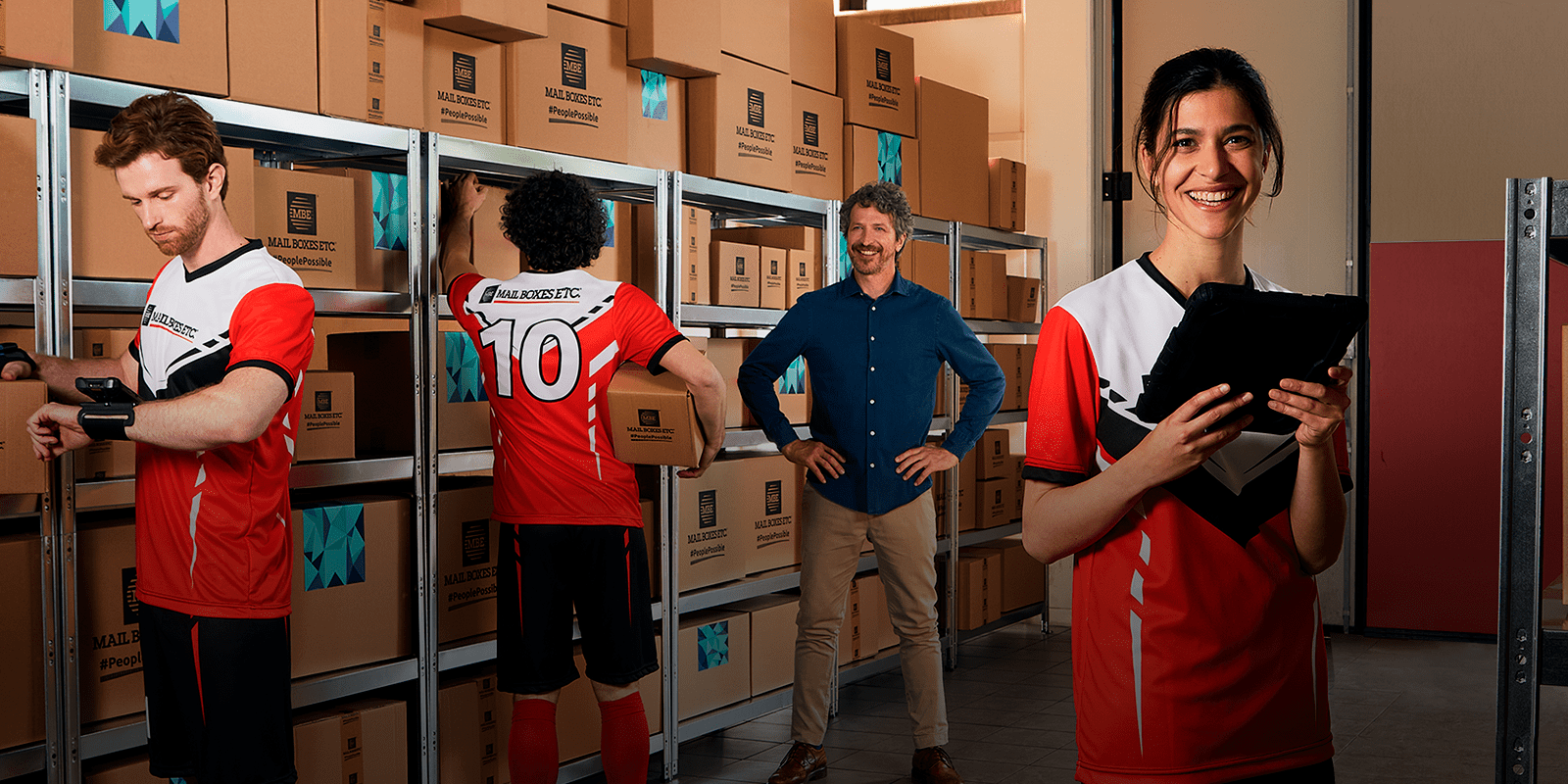
At Mail Boxes Etc. (MBE), we’ve launched an ambitious international campaign titled “We take the field for your business,” aimed at inviting companies to explore our wide-ranging suite of shipping, logistics, and e-commerce solutions tailored to their specific needs.
Customised Business Solutions
Our campaign highlights our robust offerings for small and medium-sized businesses (SMBs), encompassing e-commerce fulfilment, shipping, marketing, and print services. As an established platform in the industry, we are positioning ourselves as a vital partner in streamlining operations and driving business growth.
A Football Metaphor to Inspire Business
In collaboration with the creative marketing agency Different, we’ve designed our campaign to energize and empower businesses using a football metaphor.
This underscores our role as a one-stop partner, facilitating both physical and digital business processes. Key services include domestic and international shipping, comprehensive support throughout the shipping process, and efficient warehouse and e-commerce order management.
Rebranding for Business Focus
As part of this strategic initiative, we’re introducing a new logo aimed at business customers. This rebranding effort underscores our evolution from a pack-and-ship specialist to a multifaceted business partner.
The campaign’s engaging visuals and compelling copy highlight our versatility and expertise, demonstrating our ability to provide professional solutions that stay ahead of market trends and business requirements.
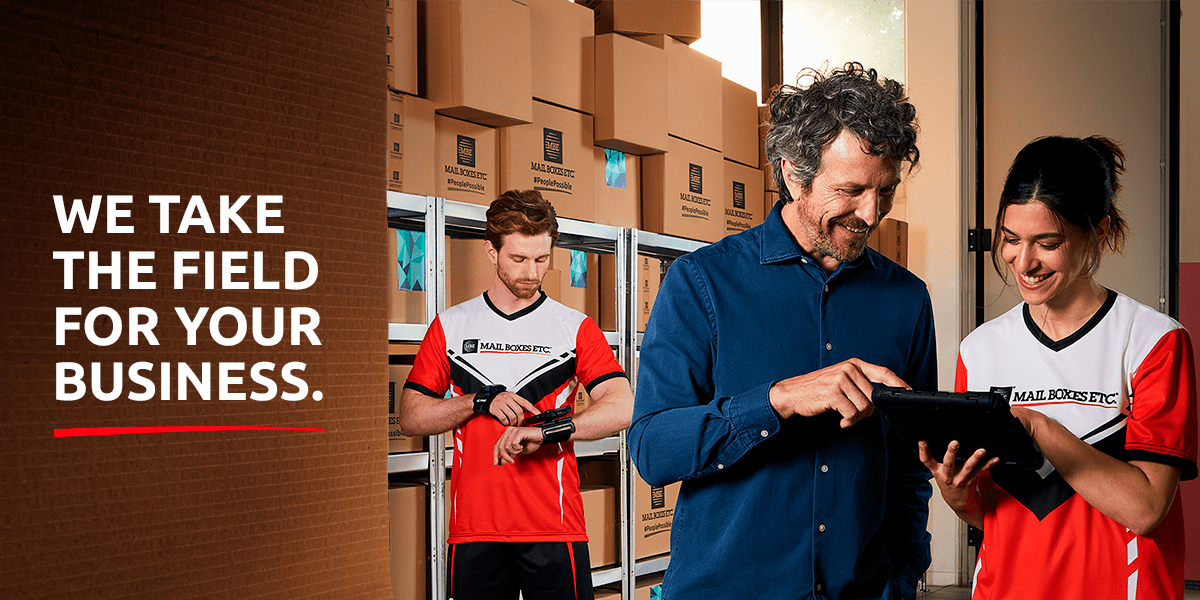
Commitment to Supporting SMBs
“This campaign calls for companies to choose MBE as their team of professionals for e-commerce, logistics, and shipping activities, which are crucial for most SMBs today,”
Said Marianna Centurione, our Worldwide Marketing Vice President.
“It reinforces our ability to serve a wide range of industries and tailor solutions to meet the diverse needs of SMBs, while bringing our brand closer to our clients and their ambitions.”
MBE Franchise Services in the UK
In the UK, Mail Boxes Etc. offers a robust franchise model that supports franchisees with a comprehensive range of services. From the initial setup, including site selection and store fit-out, to ongoing training and operational support, we ensure our franchisees are well-equipped to succeed.
Our franchisees benefit from national marketing campaigns, a reliable supply chain, and continuous innovation in services. This model not only provides a reliable income stream but also helps franchisees build strong relationships within their communities, leveraging our brand’s reputation and customer trust.
Extensive Campaign Reach
Scheduled to run from June 14th to July 14th, our campaign will leverage a mix of digital and physical media—including television, radio, press, and social media—to increase brand awareness and drive lead generation. The campaign is set to launch across eight countries: Italy, Spain, Germany, France, Poland, the UK, Ireland, and Portugal, reaching around 1,300 MBE Business Solutions Centres globally.

How to choose successful franchising

Investing in a new business project requires a considerable commitment in terms of time and economic resources: you must face the challenges posed by the market in which you wish to develop your business, carefully evaluating the potential return on investment.
For these reasons, choosing and starting a successful franchise represents a strategic choice that can significantly accelerate the growth and expansion of a business.
Although there is no unanimous agreement on the statistics relating to the success rate of franchising, in a more recent study, Frannet analyzed approximately 1,500 businesses, finding that almost 92% of the businesses examined are still operational after two years, while 85 % continue its activity after five years.
The statistics therefore provide an analysis of the main elements that can positively influence the development of this type of commercial activity. Knowing these factors in advance will allow potential entrepreneurs to make an informed choice and successfully start a franchising business that not only responds to market needs, but is also able to support future challenges, ensuring sustainable, profitable commercial development.
In fact, the success of a franchise strongly depends on the ability to select the right partner, who not only aligns with your entrepreneurial aspirations, but also offers a consolidated structure and continuous support throughout the duration of the collaboration.
In this article, we will analyze the fundamental characteristics that allow us to identify a successful franchise, with the aim of guiding potential entrepreneurs during the process that leads to the selection of a reliable partner. From a clear understanding of the business model to evaluating the reliability and reputation of the brand, we will illustrate how to identify and evaluate opportunities in the market, which can transform the desire to start a new business into a tangible and profitable reality.
Recognizing a successful franchise is essential for anyone who wants to invest in this business model. The choice of a well-structured and tested system, supported by a strong brand recognized by customers, allows you to significantly reduce business risks and attract investments and partnerships more easily, thanks to the trust and credibility that this established brand brings.
Regardless of the product sector in which you want to start a new business, a winning franchise stands out for the presence of these elements:
- Proven business system. A successful franchise offers a proven system, complete with procedures and processes that have already proven their effectiveness to a large network of partners. As an affiliate, you must have clear and well-defined sales processes and financial benefits that allow you to benefit from important tax advantages. Moreover, a consolidated and happy customer base is an essential element that can significantly influence the success of a franchise. An affiliation that enjoys high loyalty and positive reviews demonstrates the validity of the business model and its ability to meet market expectations, thus guaranteeing a revenue flow and stable and sustainable growth in the long term.
- Solid Brand identity. A coherent and solid brand identity represents one of the main characteristics that a successful franchise must have. In addition to including the design, logo and layout, this visual identity defines the very essence of the brand. It is through this identity that the brand manages to capture the attention of its potential customers. Furthermore, a coherent and recognizable brand identity on all communication channels, both online and offline, helps consolidate the brand’s image externally, guaranteeing reliability to potential customers and company stakeholders. A well-defined brand identity not only conveys the company’s personality and values, but also its professionalism, thus helping to build a lasting reputation that allows it to stand out amidst the competition.
- Effective Business plan. It is important that the chosen brand offers a sustainable economic formula, with clear and well-defined markups on products or services, which allow you to carefully evaluate the parent company’s offer, comparing it with the specific needs of your target market. The business plan for franchising must ensure that the selling price largely covers the purchase costs, while ensuring profit and sustainability and taking into account all operating costs. Furthermore, the parent company must provide its affiliates with support during all the phases necessary for starting a new business: from the creation of a business plan to the planning of a personalized growth path updated with the most recent market dynamics. The most important franchisors collect, analyze and share updates on market trends with their affiliates, necessary to modify their strategy in real time in relation to new customer needs.
- Marketing omnichannel strategies. The ability to reach customers across multiple channels, both traditional and digital, allows affiliates to maximize their visibility and reach a broader audience. A successful franchise should offer comprehensive support to its entrepreneurs, providing them with access to integrated marketing campaigns ranging from national to local initiatives. The marketing strategy must have the objective of facilitating the acquisition of new customers and promoting the brand, also giving affiliates the necessary support to implement any local initiatives, essential for the development of the business in the area in which the new company is based. Thanks to well-planned omnichannel marketing strategies, affiliates can obtain tangible results in achieving their commercial objectives and consolidating their presence in the local market.
- Continuous support and training. The chosen brand must provide continuous training to its entrepreneurs, both online and in person, through certified centers. These training programs must have the objective of analyzing all the operational aspects connected to the management of the business in detail and must also address the main issues relating to the administrative and financial control of the company. It is through this training that franchisees acquire the necessary skills to start a successful franchise, both in terms of operational management and strategic development. Generally, the more structured brands allow entrepreneurs to have the direct support of a large network of affiliates, from whom it is possible to ask for support, receiving valuable information to solve the main problems associated with managing a commercial business.
To identify a successful franchise, it is therefore necessary to carefully evaluate the distinctive characteristics and services offered by the brand with which you intend to start a commercial collaboration.
Mail Boxes Etc. provides entrepreneurs with a business system tested for over 30 years that allows you to boost your entrepreneurial career by offering professional services to small and medium-sized businesses. Opening an MBE Center allows you to become part of one of the largest commercial networks in the world, managed by independent entrepreneurs who offer individuals and companies customized solutions for logistics and e-Commerce, shipping and marketing and printing services. MBE will always be at your side providing you with tools and techniques designed to develop and consolidate your business in the long term.

The main types of franchising

This business model represents a valid system for the growth and development of companies in a wide range of industrial sectors.
It is based on an agreement between two commercial entities: the company that owns the brand and know-how and the entrepreneur who adopts this commercial structure to develop a new business.
With a wide variety of business and organizational systems, the main types of franchising offer valid opportunities for businesses of different nature and size, each with specific characteristics, advantages and challenges to overcome. From franchising in the retail sector to the distribution of services and the industrial sector, the types of franchising adapt to the needs of each product sector, facilitating a customization of the company structure that allows it to respond to consumer requests and the characteristics of its geographical target.
Confirmation comes from the data released by MarketSplash, according to which, considering all types of franchising, approximately 95% are owned and managed as single units, generally by entrepreneurs aged between 45 and 64, equal to 55 % of the entire affiliate demographic. These data confirm how, regardless of the sector of interest, there is a model capable of satisfying the growth aspirations of every entrepreneur.
The ability of this commercial affiliation system to adapt and respond flexibly to market challenges makes it a strategic choice not only for start-ups, but also for established companies wishing to expand their presence internationally.
For these reasons, the analysis of each type of franchising, including the emerging models that are gaining ground in response to unexplored niches, becomes fundamental to capitalize on the opportunities offered by each type of market.
Point 1. According to Dr Franchises, a new business opens every 8 minutes among the main types of existing franchises
Point 2. According to Statista data, in the United States alone this business model has led to the opening of over 800,000 businesses
Which are the most important types of franchising?
The choice of the type of franchising represents a crucial step for entrepreneurs who wish to start and organize a business structure best suited to their business vision.
Understanding how a chosen franchising works is therefore essential for any entrepreneur who intends to start a business in line with his skills, resources and growth objectives. From commercial product or service affiliations, which allow you to sell goods or offer services under the name of a recognized brand, to those for the production of goods, where affiliates play an important role during the production chain, the range is wide and diverse.
We can distinguish this business model with respect to the type of activity:
- Industrial: In this commercial collaboration, the parent company provides the technology, know-how and intellectual property rights necessary to produce the good, while the affiliate takes responsibility for local production and, often, distribution. This type of franchising is particularly widespread in sectors where product quality and standardization are crucial, such as in the food, beverage and chemical products sectors.
- Distribution: It mainly focuses on the retail or wholesale of goods produced by the brand or third parties. The main advantage of this type of franchising is access to a portfolio of consolidated and recognized products on the market, accompanied by proven marketing and promotional strategies. Examples include car distributors, clothing stores and electronics retailers, where brand value and customer loyalty play a key role in determining the degree of development of the business.
- Services: With this commercial agreement the company offers a brand, an operating system and ongoing support, allowing the partner to focus on the quality of service offered to the customer. The main attraction of this type of franchising lies in its scalability and relative ease of entry into the market, with initial investments often lower than other business models. The success of this commercial agreement lies in the ability to maintain high quality standards, adopting procedures for the execution of services that allow the strength of the brand to be exploited to build a solid customer base. This type spans a wide range of industries, including restaurants, education, shipping, logistics, repairs and financial services.
The main characteristics of the franchising contract
The franchising contract regulates the legal relationship between the franchisee and the franchisor, defining the role of both, the obligations required for its fulfillment, the rights and methods of carrying out the activity.
This legal agreement is made up of some clauses intended to regulate, for example, the duration, the expected royalties and any entry fee, the exclusive use of the brand’s brands, products and services, the support and assistance provided by the franchisor.
Although there are international guidelines that aim to standardize some fundamental aspects of the franchising contract, the applicable legislation varies significantly from one country to another, reflecting the legal, economic and cultural peculiarities of each legal system. Let us examine the main elements of the franchising contract together:
- Duration, renewal and withdrawal. The duration of a franchise agreement is a key element that establishes the period of time during which the franchisee is authorized to use the brand and the know-how of the brand. This duration can vary significantly depending on the brand and the sector in which it operates, often extending from 5 to 10 years, with the possibility of renewal. Indeed, it is essential that the contract clearly specifies the renewal conditions, such as the required notice and any applicable fees, in addition to the withdrawal procedures, which allow both parties to conclude the agreement in a fair and transparent way, if expectations are not met or changes in market conditions occur.
- Entry fees e royalties. The entry fees constitute the fee requested from the franchisee at the beginning of the commercial relationship: they generally cover the rights to use the brand, the transfer of know-how by the franchisor and the use of the brand’s distinctive signs. Royalties, on the other hand, are periodic payments paid by affiliates, which can be calculated as a fixed amount or as a percentage of the turnover generated by the activity. These contributions finance the ongoing services provided by the franchisor, such as technical support, marketing campaigns, training courses and access to partnerships established with banks and suppliers.
- Franchise package. The franchise package includes all the elements provided by the franchisor to ensure the start-up and effective management of the business. This includes the use of the company’s distinctive signs, operational know-how, technical and commercial assistance, as well as training programs for the entrepreneur and his staff. These elements are essential to maintain brand consistency and operational efficiency across all regional locations, while ensuring that each partner has the knowledge and resources needed to develop their business.
- Purchase prices. Often, especially in agreements concerning the distribution of goods, it is envisaged that the affiliate does not pay royalties, but proceeds to purchase a minimum quantity of goods at a certain price. It is important that the contract clearly establishes how the prices of these goods will be determined, ensuring fair and advantageous conditions for the franchisee, without compromising the quality or accessibility of the products or services offered to end customers.
- Exclusivity and non-competition agreement. Territorial exclusivity ensures the franchisee the right to operate in a specific geographical area without direct competition from other franchisees of the same brand. The non-competition agreement, on the other hand, imposes restrictions after the conclusion of the franchise agreement, prohibiting the franchisee from starting a similar business or working for a competitor for a certain period of time. These elements aim to protect the investments of both the franchisee and the franchisor, ensuring a win-win collaboration for both parties.
- Operational standards and quality of service. It is crucial to include detailed clauses in the franchise agreement regarding the operational standards and quality requirements to be guaranteed by the partners. This ensures that all stores reflect the brand’s image and values, offering a consistent, high-quality experience to customers. Detailing these standards helps prevent territorial discrepancies and maintain brand integrity on a global scale. Additionally, this section of the agreement may include provisions governing audits and compliance assessments, establishing a transparent and impartial mechanism to ensure adherence to agreed standards.
Incorporating these elements into the franchise agreement helps create a solid and transparent basis for a fruitful collaboration for both parties.
Mail Boxes Etc. offers entrepreneurs a business model with which it is possible to have access to a consolidated network of partners worldwide, which operates using professional solutions designed to boost the growth of the company.
From e-commerce to logistics, from marketing campaigns to international shipping services, MBE solutions offer entrepreneurs the opportunity to become a point of reference for Business and Retail customers. Entrepreneurs can open an MBE center to start and develop their own business with the financial support and continuous training offered by MBE.
Moreover, with respect to the organizational model adopted, we can distinguish other types of franchising, such as:
- Direct. This agreement provides a brand with the right to operate and manage a business under its brand in a specific geographic area. In this model, the relationship between the parties is therefore direct and personal, with a clear communication channel and without intermediaries. This type of franchising is ideal for entrepreneurs who wish to start a business with the full support of an established brand, benefiting from training, know-how and promotional materials.
- Indirect. In this type, the company establishes a relationship with one or more entities (often a distributor or an agent) that act as intermediaries. This model is common in international markets or in geographic areas where the parent company prefers not to directly manage its partners due to linguistic, cultural, or logistical barriers. While it may involve increased complexity in communications and quality controls, it offers companies the opportunity to expand into new markets with reduced investment and risk.
- Master franchising. This model allows the partner (master franchisee) to acquire exclusive rights to develop the business in an entire region or country: the entrepreneur can therefore open several branches in the identified region. A particularly advantageous agreement for companies that wish to rapidly expand their commercial network in large geographical areas, taking advantage of the partner’s local knowledge to overcome the challenges present in a specific market.
- Multiple. A contract that allows affiliates to obtain the exclusive right to open various affiliated businesses in a specific area. The contract is suitable for entrepreneurs with experience, financial resources and advanced management skills, who are capable of managing more complex and larger operations. The brand has the ability to expand rapidly, generating significant economic returns, avoiding having to recruit and train a large number of partners, but requires constant commitment to supervising and maintaining quality standards in all commercial locations.
The different types of franchising, with their specificities, advantages and challenges, offer multiple possibilities for those who want to embark on an entrepreneurial path supported by brands and business systems already underway.
Mail Boxes Etc., which operates in a rapidly expanding sector, such as logistics and shipping, offers entrepreneurs a system that allows them to become part of a consolidated international network, with over 30 years of experience, which helps companies to face challenges by taking advantage of training, assistance and continuous technical support. You can start a MBE business and have a team of consultants at your disposal who will accompany you step by step during your growth journey, also participating in the meeting and collaboration moments provided for all affiliates.

Best Practices For Scaling Your Courier Franchise Store
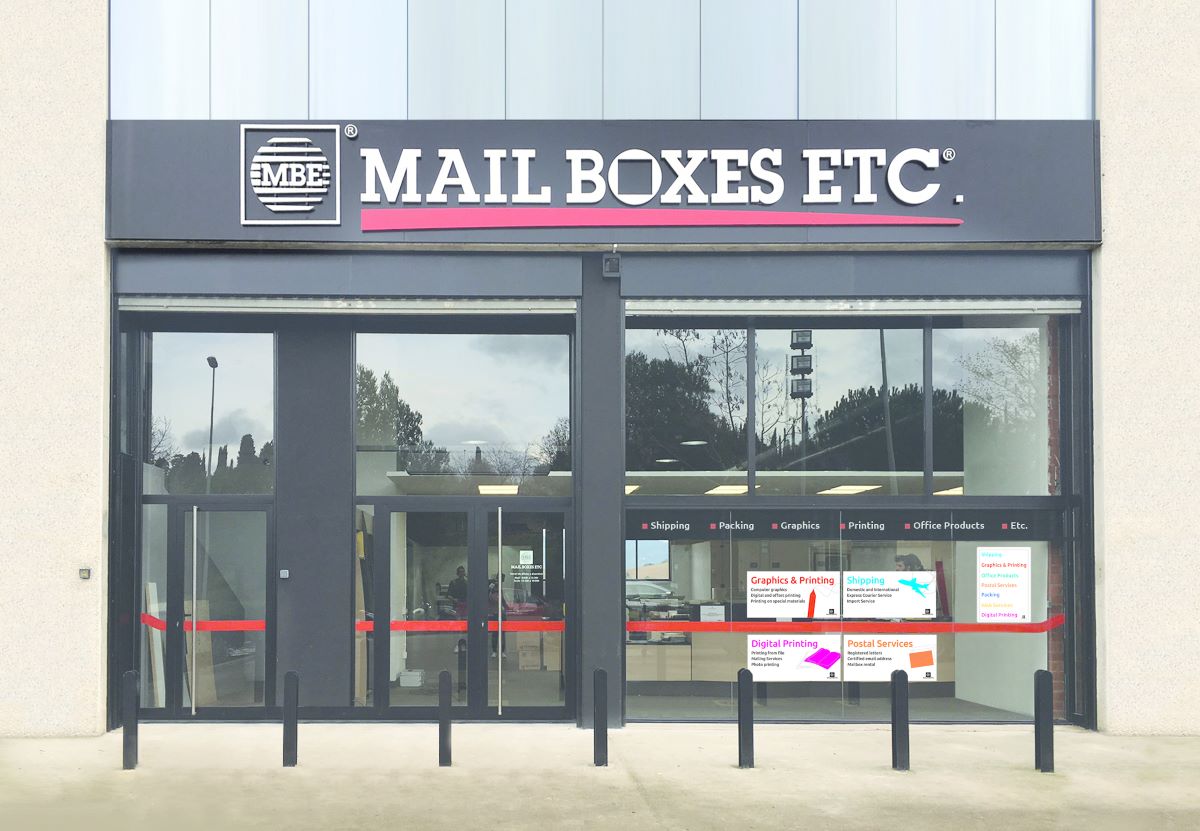
In the fast-paced world of courier services expanding your franchise store, such as Mail Boxes Etc, requires a carefully crafted strategy. Scaling a business isn’t just about growing in size; it’s about enhancing efficiency, increasing profitability, and maintaining quality service.
Here, we delve into best practices, providing granular and practical steps to scale your courier franchise store effectively.
Assessing the Market for Expansion Opportunities
Local Market Research: Conduct in-depth research into local demographics, consumer behaviour, and competitors. Understanding local demands and identifying underserved areas can guide where and how to expand.
Feasibility Studies: Perform feasibility studies to assess the potential success of expanding into new areas or introducing new services.
Financial Planning and Management
Budgeting for Expansion: Develop a detailed budget that includes expenses for marketing, infrastructure, staff training, and technology upgrades.
Securing Funding: Consider financing options such as loans, investors, or franchisor financing programmes to support your expansion.

Enhancing Operational Efficiency
Streamlining Processes: Review and streamline existing operational processes. This might involve automating certain tasks or reorganising workflow for better efficiency.
Investing in Technology: Implement advanced software solutions for logistics management, customer relationship management (CRM), and data analytics to enhance operational effectiveness.
Staff Training and Development
Employee Skill Enhancement: As you scale, invest in training programmes for employees to enhance their skills, particularly in customer service, technology use, and operational efficiency.
Recruitment Strategy: Develop a robust recruitment strategy to attract skilled professionals to manage increased operational demands.
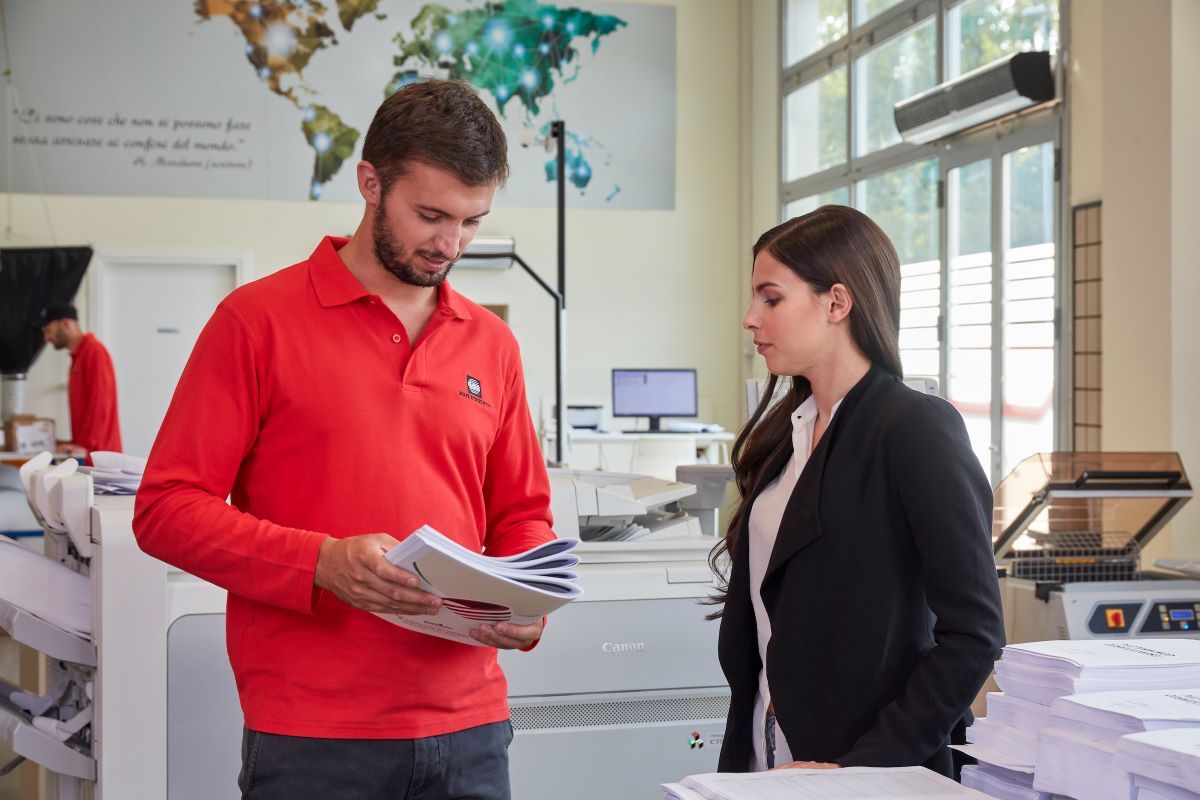
Maintaining Quality Customer Service
Standardising Service Delivery: Ensure that service quality remains consistent as you expand. Standardising procedures across all franchise locations is key.
Customer Feedback Mechanisms: Implement effective channels for customer feedback and regularly review this feedback to make necessary service improvements.
Marketing and Branding for Growth
Localised Marketing Campaigns: Tailor marketing campaigns to resonate with local audiences in new expansion areas.
Online Marketing Strategies: Leverage digital marketing tools such as SEO, social media marketing, and email campaigns to build brand awareness and attract new customers.
Scaling Infrastructure and Resources
Investment in Infrastructure: Depending on the expansion, consider investing in additional vehicles, larger storage facilities, or advanced equipment.
Resource Management: Efficiently manage resources to handle the increased workload. This could involve optimising route planning for deliveries or implementing energy-efficient practices in stores.
Building Strong Supplier Relationships
Negotiating with Suppliers: Establish or renegotiate contracts with suppliers to ensure the best terms and prices as your business volume increases.
Diversifying Suppliers: Avoid over-reliance on a single supplier by diversifying your supplier base, which can provide more flexibility and reduce risk.
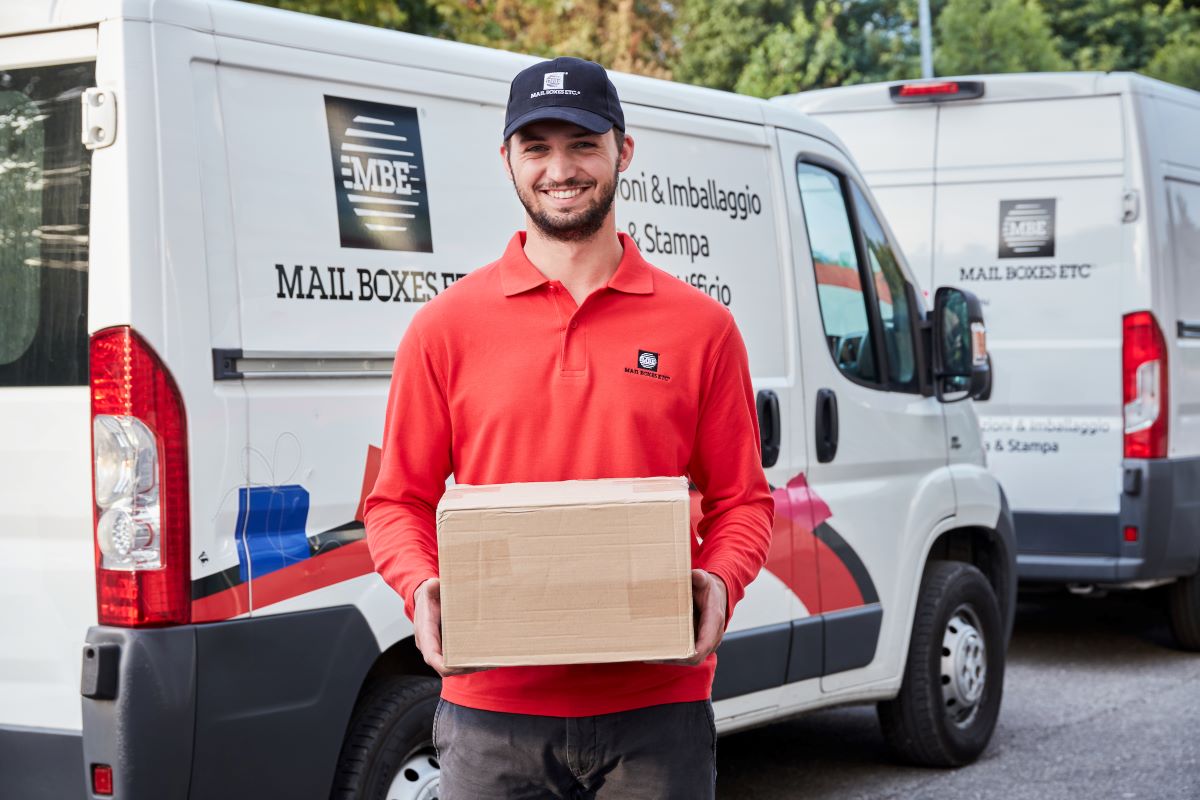
Complying with Regulations and Standards
Regulatory Compliance: Stay updated with and comply with all relevant local and national regulations as you expand your franchise.
Quality Standards and Certifications: Obtain necessary standards and certifications to enhance your franchise’s credibility and trustworthiness.
Monitoring and Adapting to Market Changes
Regular Market Analysis: Monitor market trends and adapt your business strategies accordingly. Being agile in response to market changes is crucial for sustained growth.
Feedback Loops and Continuous Improvement: Establish feedback loops within your operations to continually assess and improve your service offerings.
Expanding a courier franchise store like Mail Boxes Etc is a multifaceted endeavour requiring careful planning and execution.
You can effectively scale your business by focusing on these detailed and practical steps, from market research and financial planning to operational efficiency and quality control.
Remember, successful expansion is not just about growing in size; it’s about growing smartly and sustainably, ensuring that each step enhances your franchise’s overall value and efficiency.

Strategies to Boost Your Courier Franchise Reach

In the highly competitive world of courier services, franchises like Mail Boxes Etc face the continuous challenge of expanding their reach. Tapping into untapped markets requires innovative strategies that go beyond the conventional boundaries of service delivery. This article delves into how franchises can extend their reach and penetrate new markets effectively.
Understanding Market Dynamics
Before venturing into new territories, it’s crucial to comprehend the market dynamics thoroughly. This involves conducting comprehensive research to identify areas with high demand but low service coverage. Understanding local demographics, consumer preferences, and the competitive landscape helps in tailoring services to meet specific market needs.

Innovating Service Offerings
Innovation is key in capturing new market segments. This could involve introducing specialised services like same-day delivery, temperature-controlled logistics, or secure document courier services. By offering services that are not widely available in the market, a franchise can carve a niche for itself.
Leveraging Technology for Enhanced Reach
Technological advancements can significantly boost a franchise’s market reach. Integrating AI and data analytics into business operations can help in identifying potential new markets and understanding customer behaviour. Technology can also enhance service efficiency, making the franchise more attractive to new customers.

Cultivating Partnerships and Collaborations
Forming strategic partnerships can open doors to new market opportunities. Collaborating with e-commerce platforms, local businesses, or even other courier services can provide access to a wider customer base. These partnerships can be mutually beneficial and can lead to shared growth.
Effective Marketing and Branding Initiatives
Marketing plays a pivotal role in expanding market reach. Effective branding and targeted marketing campaigns can raise awareness about the franchise in new areas. Digital marketing, including social media advertising and SEO, can be particularly effective in reaching a broader audience.
Community Engagement and Local Market Integration
Integrating into local communities is essential for long-term success. Participating in local events, sponsoring community activities, or offering services tailored to local needs can help in building a loyal customer base in new markets.
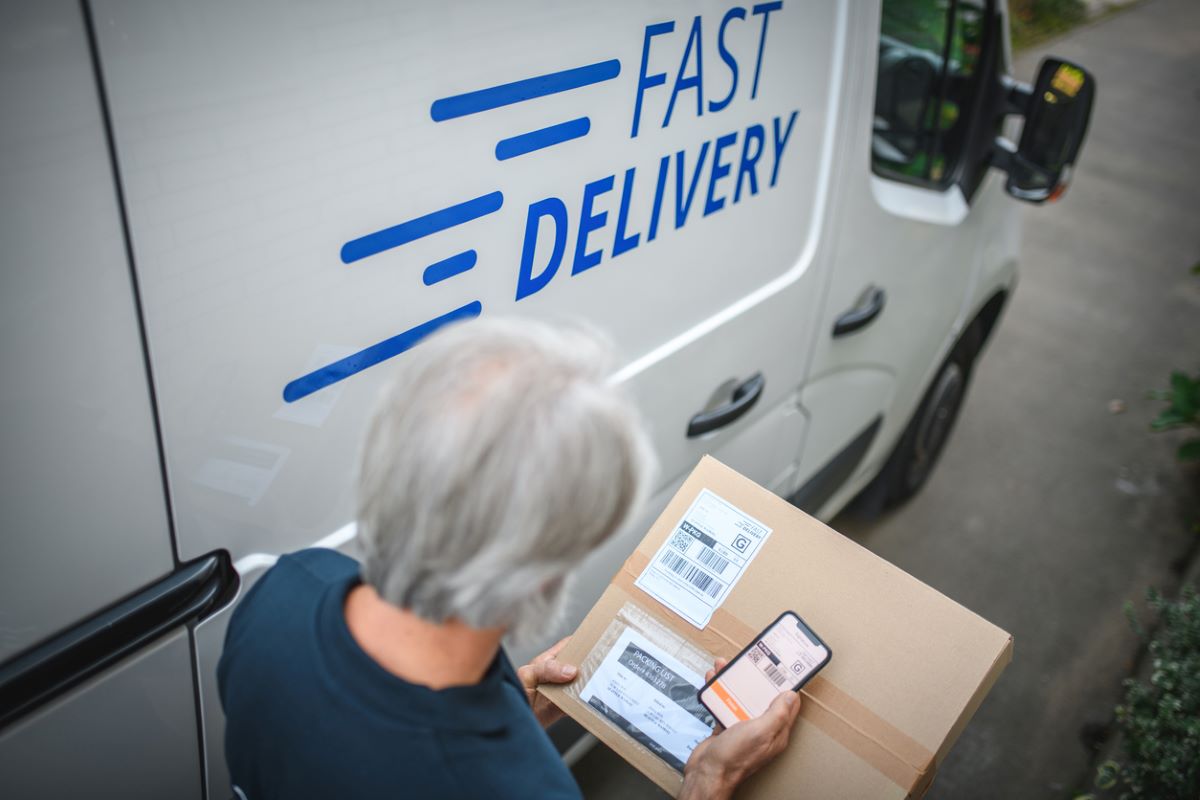
Adapting to Changing Market Needs
The market is continuously evolving, and so should the strategies of a courier franchise. Regularly assessing and adapting to changing consumer needs and market conditions is crucial for sustained growth in new areas.
Investing in Training and Development
Investing in staff training and development becomes imperative as the franchise expands into new markets. Well-trained employees can better represent the brand and deliver exceptional service, aiding in the successful penetration of new markets.
Expanding a courier franchise like Mail Boxes Etc into untapped markets requires a combination of market understanding, innovative service offerings, technological integration, strategic partnerships, and effective marketing. By focusing on these areas, franchisees can extend their reach and establish a strong presence in new market segments, paving the way for continued growth and success.
